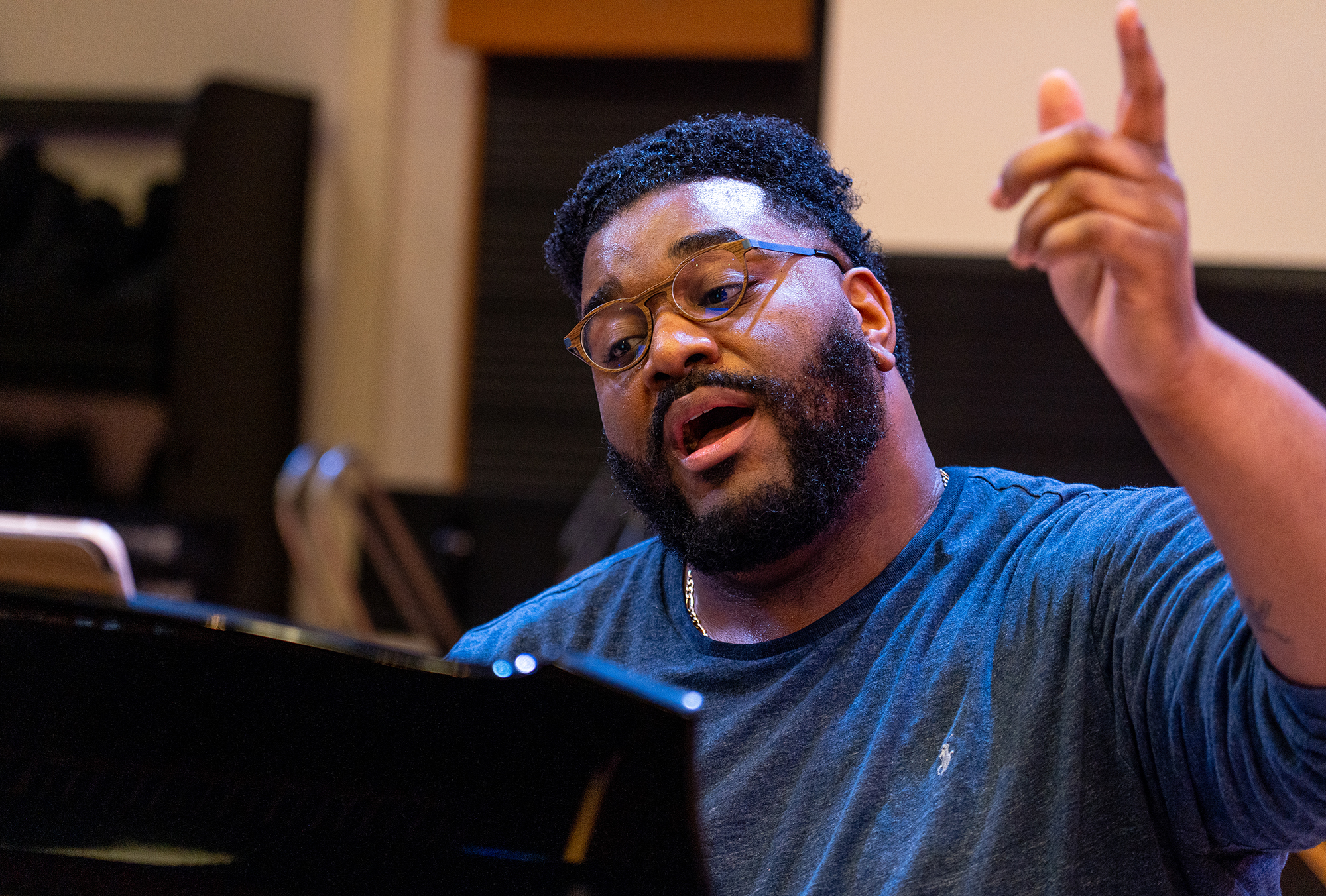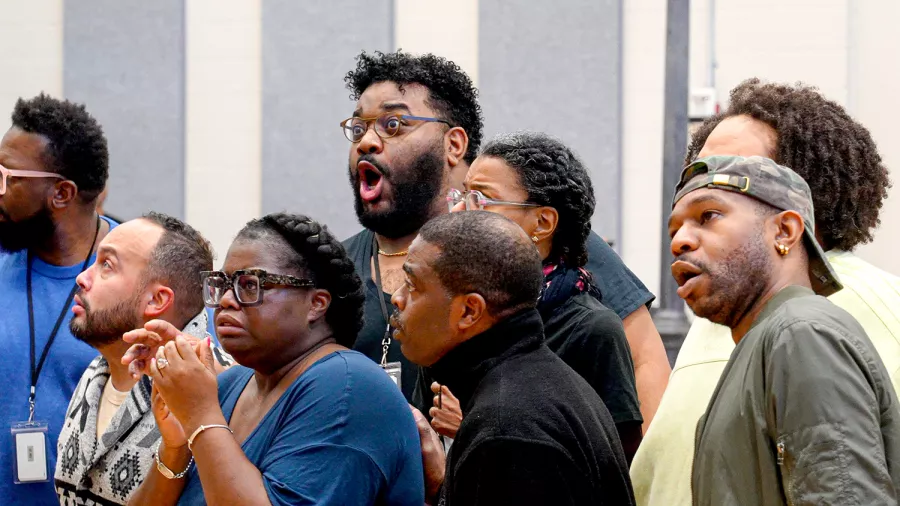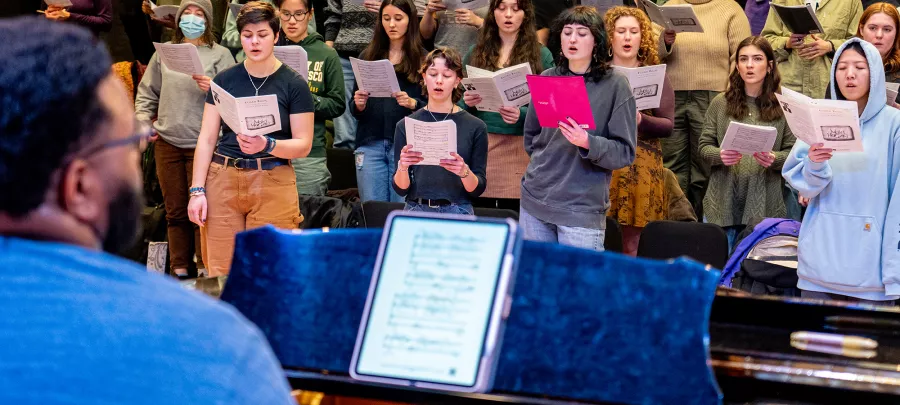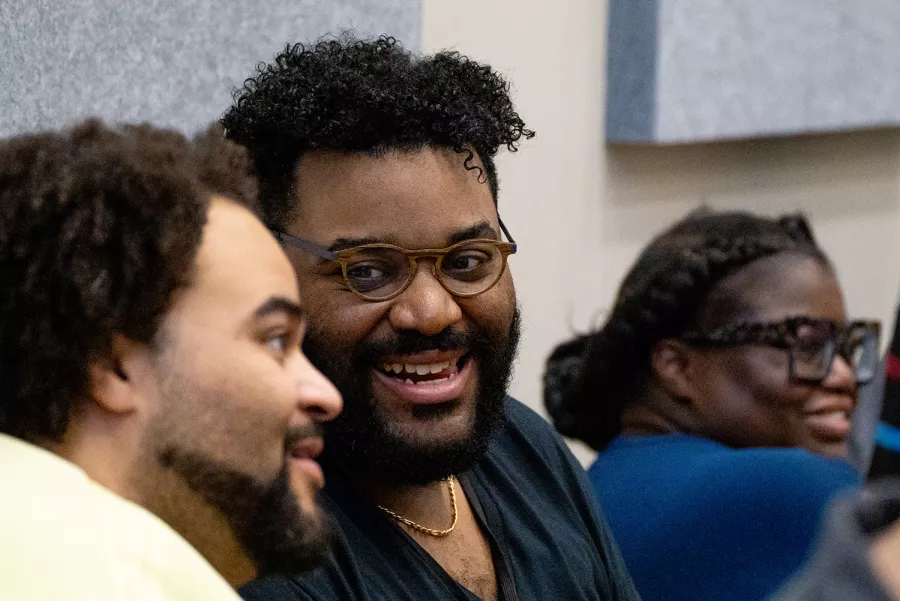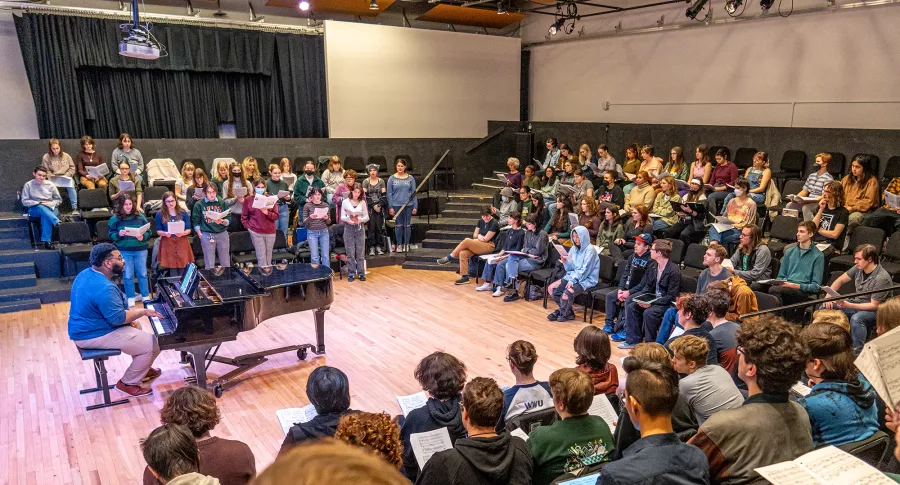As an opera singer, WWU Assistant Professor of Music Richard L. Hodges knows well that joyfully anxious moment of anticipation before the music starts.
But performing at the nation’s most prestigious opera house? That’s a whole different flock of butterflies.
Hodges spent a big part of fall 2023 singing at The Met, the Metropolitan Opera in New York City, as part of the cast of “X: The Life and Times of Malcolm X.”
“It was life-changing—a dream, really. Euphoric. Humbling. Electrifying. Beautiful,” he says. “There’s this moment at the start of ‘X’ when the curtain goes up, but you are still hidden, and can just draw a deep breath and take it all in. But you can’t get lost in the majesty—you've got a job to do.”
And more on-stage work is coming this month as Hodges will appear in Seattle Opera’s production of “X” at McCaw Hall, opening Feb. 24 with performances ending March 9.
